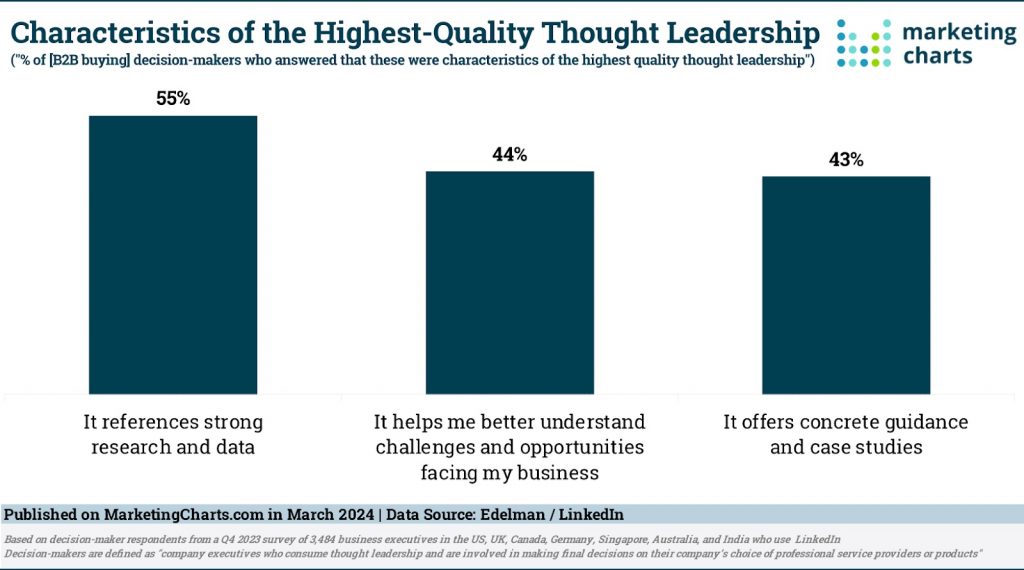
7 Building B2B Brand Awareness Tactics That Actually Work
Found yourself wondering what it takes to build brand awareness? You’ve landed at the right place!
Ironically, in the digital age, the human attention span has shortened to that of a goldfish. We can focus on a single screen for only about 47 seconds. This poses a dire challenge for any business trying to increase its brand’s visibility to a larger audience.
Fret not! This article can help you catch the eye of potential business partners through a blend of finesse, strategy, and a sprinkling of creativity (Salt Bae style).
But first, let’s get some clarity about the concept of brand awareness and how it makes sense for your business.
Brand Awareness: What Is it Exactly?
In simple terms, it is the degree to which your target audience is acquainted with your business’s identity and your services or products. Brand awareness lays the foundation of your sales funnel! After all, your targeted business partners must first recognize your brand to trust and buy from it. A substantial level of brand awareness provides a competitive edge that will keep your company top of mind among your potential customers.
7 Proven Tactics To Increase Brand Awareness
Here’s how you can work your way toward establishing noteworthy brand awareness in the B2B arena.
-
Become a Thought Leader in Your Niche
When starting the process of building brand awareness from scratch, thought leadership content can prove to be your holy grail. Nine out of 10 B2B decision-makers and C-suite executives are moderately or very likely to be more receptive to sales or marketing outreach from a company that consistently produces high-quality thought leadership. You can create a top-notch content marketing strategy and develop features like webinars, white papers, case studies, interviews, articles, guides, podcasts, and videos.

This process will provide three benefits to your brand:
- It offers the opportunity to showcase your company’s unique selling point to potential clients and what differentiates your product or service from others.
- Actively sharing your knowledge and insights establishes your expertise in your niche, which transforms into brand trust.
- This trust cultivates a deeper connection with your audience, resulting in a more prominent presence in the market.
-
Befriend Social Media
While thought leadership content works its magic, you need the right media to ensure that your content reaches the right audience. The materials mentioned above showcase your industry knowledge and expertise, and a powerful presence on social media helps establish your brand’s unique identity. Nowadays it even helps you recruit the best talent via social media platforms to grow your organization rapidly.
There is a wide array of social media platforms available out there—LinkedIn, X, Facebook, Instagram, Snapchat, and TikTok being a few of the most popular. Eighty-two percent of B2B marketers say LinkedIn delivers the best value to an organization as a social media platform. However, you have to do some homework and test a few platforms to find the social media channel that most of your target audience is using.
-
Leverage Programmatic Ads
Programmatic advertising automates the process of purchasing advertisements or ad space across many digital platforms, including display, mobile, video, social media, and others, by utilizing artificial intelligence (AI) and advanced algorithms. Algorithms quickly decide which advertisements are shown to particular audiences based on a variety of data sources, including demographic data and online surfing behavior. With little to no human involvement required, this automated process operates in real time and is fully driven by data.

Programmatic advertising offers a lot of unrealized potential for increasing brand awareness and influencing B2B purchasing choices. Programmatic advertising can be used to target potential customers and provide a consistent flow of leads for a company’s sales tool and outreach campaigns. Additionally, the knowledge you acquire from your programmatic endeavors will eventually help you understand more about your prospective clients as individuals and as business executives.
-
Don’t Forget About Demand Generation
Demand generation encompasses any marketing initiative that piques clients’ interest in your goods and services without directly attempting to close a deal.
Programs for creating demand can help your business expand into new areas, highlight new features for products, create buzz among consumers, produce press, and win back old clients.
Demand generation is essentially a long-term, education-focused marketing approach that emphasizes connecting with and educating “out-of-market” consumers.
The ultimate objective of B2B demand generation is to be at the forefront of your potential customers’ minds when they are not in a buying cycle, ensuring that your product or service is promptly taken into consideration for purchase if the need arises.
A strategic attitude and a dedication to long-term customer connections set demand generation apart from other customer acquisition strategies.

Split between brand awareness and demand generation investments among B2B companies worldwide Source
-
Include Corporate Social Responsibility Practices
Corporate social responsibility (CSR), especially in the B2B sector, has become a critical component for businesses globally in recent years. CSR is the term used to describe the moral and environmentally friendly actions that a business decides to take to have a beneficial impact on society. These behaviors can include fair trade, corporate charity, and environmental conservation initiatives.
CSR is becoming more than just a “nice to have” in the B2B sector; it’s now a must for business. Businesses are waking up to the fact that stakeholders, including suppliers, customers, and staff, expect them to do more for them than just deliver products or services. They want companies to change the world for the better.
B2B marketing tactics are significantly impacted by CSR, which has become a focus for firms due to its potential benefits.
CSR programs support the enhancement of a brand’s reputation and image. Having a solid reputation for ethical behavior may make a big difference in the B2B sector, where trust and long-term partnerships are crucial. It conveys to prospective customers and business partners that your organization is dedicated to having a beneficial social effect in addition to making a profit.
Moreover, in a survey of 2,000 workers, 76% of respondents said they would like to work for an organization that aims to improve the world. High-caliber talent can be drawn to and kept by CSR. Today’s workers are looking for meaningful employment and want to work for organizations that share their beliefs, not just a paycheck. In the B2B sector, where employee quality has a direct impact on customer relations and service delivery, CSR can be an effective strategy for hiring and retaining staff.
-
Offer Value Beyond Your Product or Service
This entails producing informative material for your viewers or providing complimentary things.
If your business is in the technology sector, this may be as easy as making a series of videos that break down difficult technical ideas into understandable language. Alternatively, if you own a fitness brand, you may provide free at-home exercise programs.
Fitbit, for instance, offers smartwatches and fitness trackers. However, it also gives customers access to their fitness information, exercise schedules, challenges, and social elements through a free mobile app. While this example is for a B2C brand, it’s all about becoming a resource for your audience so they’ll return to you repeatedly.
-
Provide Consistent Customer Service
Customer service is critical for dealing with your customers. It provides a place for customers to communicate their complaints and feedback about your product. Excellent customer service ensures that customers feel valued and trusted in your business brand. This trust leads to increased customer loyalty and recommendations to others. Customer service is also a great way to get the best customer reviews, which brings a good reputation. This brand awareness strategy raises not only customer loyalty but also lead generation.
To provide excellent customer service, you need a potent and efficient tool. WhatsApp chatbot is one of the platforms that is commonly used in this strategy. Its ability to be a consistent tool is the reason why many large companies choose it. Chatbots can support you in providing quality customer service because of some superior features:
- They can reply to customer messages 24 hours a day.
- They can convey messages consistently with an adjusted language tone.
- They can send customized messages without having to send them one by one.
WhatsApp chatbot is a service that meets and satisfies customer expectations. This is an example of how businesses can increase brand awareness significantly with high service standards.
Summing Up
In today’s marketing scenario, building robust brand awareness is essential. For potential business partners to remember and select you as a vendor when they are in the market, you must engage with them early in the purchasing process, establish credibility, and leave a lasting impression. And remember, this isn’t a one-and-done process; you have to be persistent if you want to build a significant name for your brand. Using the tactics mentioned above will compound the results over time and give your brand the recognition in the industry that it deserves.



